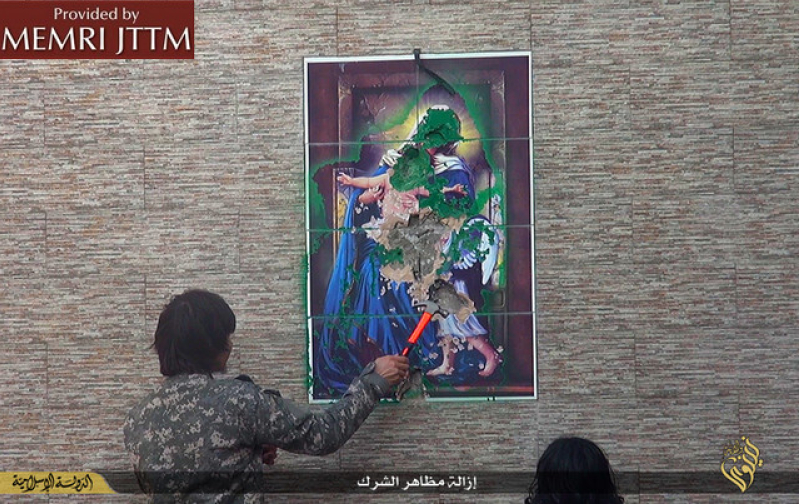
A Christian family in the ancient city of Nineveh is working tirelessly to defend the 2,700 year-old tomb of the Jewish prophet Nahum as Islamic State militants draw closer to the region.
"When the last Jewish people in Al Qosh left, they asked my grandfather to watch over the tomb, to keep it safe. I don't know much more than that," Asir Salaam Shajaa, an Assyrian Christian, told Haaretz.
"Nahum is not our prophet, but he is a prophet, so we must respect that. He's a prophet, it is simple."
According to the Biblical account, the prophet Nahum predicted the fall of Nineveh in the seventh century BCE, and his remains are believed to be kept at the tomb of "Nahum the Elkoshite" in the Al Qosh, the city built over the ancient Nineveh.
Shajaa told Haaretz that his family has cared for the tomb for decades, having promised the Jewish residents of Al Qosh more than 60 years ago that they would protect the historic landmark. The report notes that Al Qosh possessed a thriving Jewish community until 1950, when the Iraqi government began to purge the country of Jews.
Shajaa explained that while the walls of old synagogue are crumbling, he and his family continue to care for the tomb and permit visitors to come pay their respects.
"No one can decide what to do with the place. There were people who came a few years ago, some wealthy Jewish people who wanted to rebuild the fallen walls with the same stones," he said.
"The government didn't like that though, they didn't want them to use the same materials because they think it isn't safe. But then Islamic State came and we are close to the fighting here, so nothing will happen now."
While he is confident ISIS will not conquer the city, Shajaa said their pending approach has affected pilgrimages to the tomb.
"I'm not sure how long my family will continue to stay in Iraq, we want to leave, most of the Christians want to leave," he added. "My brother says he will stay though, if my family gets to leave Iraq my brother and his children will look after the tomb. It will stay in the family, God willing."
Since overtaking large swaths of Iraq and Syria last year, Islamic State militants have systematically destroyed ancient ruins and artifacts. In March, the group bulldozed the ancient Assyrian city of Nimrud in northern Iraq and looted priceless items dating back 13 centuries B.C., including statues and other historic objects.
A short time earlier, the group released a video showing them destroying Assyrian era statues and sculptures in Mosul, formerly home to thousands of Christians. The group had earlier also burned many priceless manuscripts at the city's library.
In addition to leveling a fourth-century Syrian monastery, the group is faulted with destroying a tomb believed to be that of biblical prophet Jonah, a move which triggered widespread condemnation and horror.
In video footage of the destruction in Mosul, an unnamed fighter explains: "These antiquities and idols behind me were from people in past centuries and were worshiped instead of God. When God Almighty orders us to destroy these statues, idols and antiquities, we must do it, even if they're worth billions of dollars."
However, experts believe the militants traffic the items to fund their military and destroy only those pieces that are too large to be smuggled.
"They have networks that allow them to traffic in cultural treasures," said Fawaz Gerges, professor of Middle East studies at The London School of Economics. "They have made tens of millions of dollars selling artworks."







